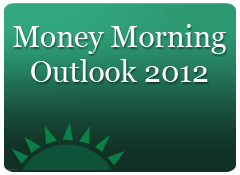In 2008, reckless credit default swaps nearly obliterated the global economy. Now comes the next crisis – rehypothecated assets.
It's a complicated, fancy term in the global banking complex. Yet it's one you need to know.
And if you understand it, you will get the scope of the risks we currently face – and it's way bigger than just Greece.
So follow with me on this one. I guarantee that you'll be outraged and amazed – and better educated. You'll also be in a better position to protect your assets at the end of this article, where I'll give you three important action steps to take. So follow along…
Their Profits on Your Money
Few people know this, but there's a process through which banks and trading houses are leveraging your money to increase their profits – just like they did in the run-up to the last financial crisis. Only this time, things may be worse, as hard as that is to imagine.
Consider: In 2007 the International Monetary Fund (IMF) estimated that this form of "leverage" accounted for more than half of the total activity in the "shadow" banking system , which equates to a potential problem that would put this insidious little practice on the order of $5 trillion to $10 trillion range. And this is in addition to the bailouts and money printing that's happened so far.
Wall Street would have you believe this figure has gone down in recent years as regulators and customers alike expressed outrage that their assets were being used in ways beyond regulation and completely off the balance sheet. But I have a hard time believing that.
Wall Street is addicted to leverage and, when given the opportunity to self-police, has rarely, if ever, taken actions that would threaten profits.
Further, what I am about to share with you is one of main the reasons why Europe is in such deep trouble and why our banking system will get hammered if the European Union (EU) goes down.
And w hat makes this so disgusting – take a deep breath – is that it's our money that's at stake. Regulators like the Securities and Exchange Commission (SEC) and their overseas equivalents are not only letting big banks get away with what I am about to describe, but have made it an integral part of the present banking system.
Worse, central bankers condone it.
As you might expect, the concept behind this malfeasance is complicated. But it's key to understanding the financial crisis and to avoiding a possible global recession in 2012 and beyond.
What we're talking about is something called "rehypothecation."
Most people have never heard the term, but trust me, you will shortly. Let me explain what this is, and why you need to know about it. Then, I'll offer three ideas to trade around it.

